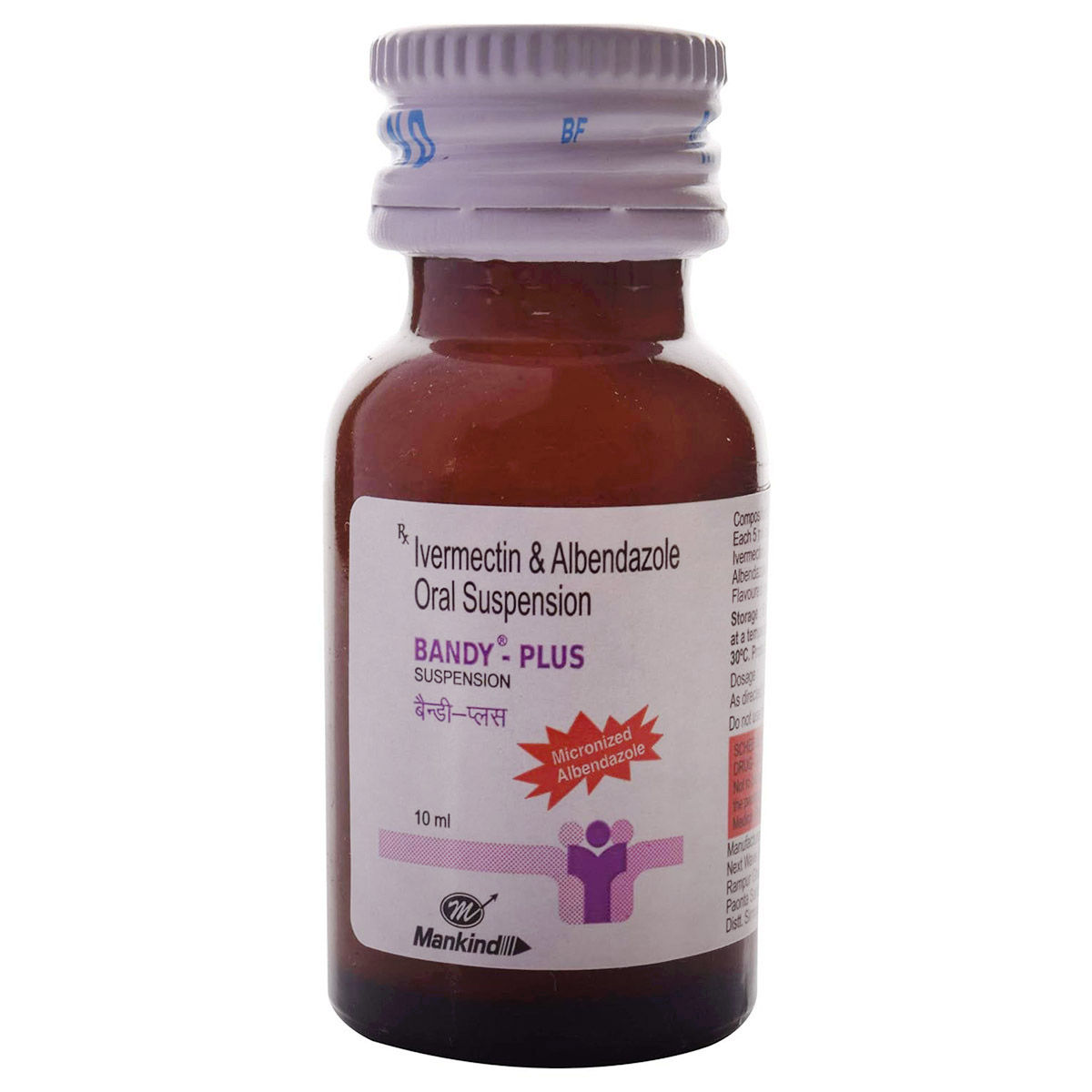Deeworm I Oral Suspension
Deeworm I Oral Suspension is used to treat parasitic worm infections in paediatrics. It can be used to treat infections caused by roundworms, hookworms, threadworms, whipworms, pinworms, flukes, and other parasites. It contains Albendazole and Ivermectin, which work by keeping the worm from taking glucose and depleting its energy levels, leading to its immobilization. Also, it can kill the parasites by acting on the nervous system. It starves the worms by inducing paralysis, consequently leading them to death. Common side effects of Deeworm I Oral Suspension may include stomach pain, nausea, vomiting, headache, dizziness, decreased white blood cell count (leucopenia), vision problems, confusion, weakness, and difficulty walking.
₹30.6*
MRP ₹34
10% off
₹28.9*
MRP ₹34
15% CB
₹5.1 cashback(15%)
Free Delivery
With Circle membership
(Inclusive of all Taxes)
This offer price is valid on orders above ₹800. Apply coupon PHARMA10/PHARMA18 (excluding restricted items)
Know Your Delivery Time
Provide Delivery Location

Available Offers
 Prescription drug
Prescription drugWhats That

Secure Payment

India's Most Trusted Pharmacy

Genuine Products
Composition :
Manufacturer/Marketer :
Consume Type :
Return Policy :
About Deeworm I Oral Suspension
Deeworm I Oral Suspension is used to treat parasitic worm infections in paediatrics. Parasitic worm infections are intestinal worm infections that are caused by the ingestion of contaminated food and water. Deeworm I Oral Suspension can be used to treat infections caused by roundworms, hookworms, threadworms, whipworms, pinworms, flukes, and other parasites.
Deeworm I Oral Suspension contains ‘albendazole’ and ‘ivermectin’, which work by keeping the worm from taking glucose and depleting its energy levels, leading to its immobilization. Ivermectin can kill the parasites by acting on the nervous system. It starves the worms by inducing paralysis, consequently leading them to death.
Deeworm I Oral Suspension is for paediatric use only. Give Deeworm I Oral Suspension to children as advised by the doctor. Deeworm I Oral Suspension may cause some common side effects such as stomach pain, nausea, vomiting, headache, dizziness, decrease in white blood cell count (leucopenia), vision problems, confusion, weakness, and difficulty walking. Most of these side effects of Deeworm I Oral Suspension do not require medical attention and gradually resolve over time. However, if these side effects persist or worsen, please consult your doctor.
Before using the Deeworm I Oral Suspension, please inform your doctor of your children's or caregiver's medical conditions, sensitivities, and all drugs they are taking. Continue using Deeworm I Oral Suspension for as long as your doctor has prescribed to treat your child's illness effectively. Do not use any other medications or supplements while using Deeworm I Oral Suspension unless recommended by the doctor.
Uses of Deeworm I Oral Suspension
Directions for Use
Shake the bottle well before each use. Take the prescribed dose by mouth using the measuring cup/dosing syringe/dropper.
Medicinal Benefits
Deeworm I Oral Suspension contains ‘Albendazole’ and ‘Ivermectin’, which belong to the class of medications called ‘antihelmintic’. It is a broad-spectrum antibiotic used in the treatment of parasitic infections. It can kill the disease-causing worms and stop the spread of infection effectively. Albendazole interrupts the absorption of glucose by the worm leading to energy depletion. Ivermectin acts by paralyzing the worms, consequently leading them to death.
How Deeworm I Oral Suspension Works
Storage
Side Effects of Deeworm I Oral Suspension
- Stomach pain
- Nausea
- Vomiting
- Headache
- Dizziness
- Decrease in white blood cell count (leucopenia)
- Vision problems
- Confusion
- Weakness
- Difficulty walking
What if I have taken an overdose of Deeworm I Oral Suspension
Drug Warnings
The presence of other medical problems or using other medications may affect the use of this medicine. Deeworm I Oral Suspension is not recommended for those who are hypersensitive to any substance in Deeworm I Oral Suspension. Deeworm I Oral Suspension should not be used in anaemias other than those due to iron deficiency. So, before using Deeworm I Oral Suspension, let your doctor know about all your children's medical conditions (especially if they have any blood disorders or iron overload, etc), sensitivities, and all medications, including supplements used.
Diet & Lifestyle Advise
Diet for Children to Avoid Parasitic Infections:
- Avoid Raw or Undercooked Meat: Raw or undercooked meat, fish, and shellfish are all potential sources of parasites.
- Cook Food Thoroughly: To eliminate any potential parasites, ensure that all meat and poultry are cooked to the recommended internal temperatures.
- Wash Fruits and Vegetables: Thoroughly rinse produce under running water to remove any hazardous bacteria or parasites that may be on the skin.
- Limit Your Consumption of Raw Fish: While sushi is a great treat, eating too much raw fish may raise your risk of parasite infection.
- Drink Filtered Water: If the quality of your tap water is questionable, give your children filtered water to avoid ingesting waterborne parasites.
Lifestyle Habits to Prevent Parasitic Infections:
- Practice Good Hygiene: Teach children the significance of washing their hands with soap and water after using the restroom, eating, and playing outside.
- Avoid infected Water: In locations with low water quality, avoid swimming in lakes, rivers, or ponds that may be parasitically infected.
- Regularly Clean Living Areas: Keep your home and surroundings clean to reduce the occurrence of bugs that may carry parasites.
- Wear Shoes in Public: Encourage youngsters to wear shoes when using public restrooms or changing rooms to avoid coming into contact with contaminated surfaces.
Habit Forming
Therapeutic Class
Deeworm I Oral Suspension Substitute

Bandy-Plus Suspension 10 ml
₹3.69per tabletEvermectin-A Suspension 10 ml
by AYUR
₹2.52per tabletOdal Plus Drop 10 ml
₹2.02per tabletWormscan Suspension 10 ml
₹4.32per tabletCoside Plus Suspension 10 ml
₹3.35per tablet
Product Substitutes
Alcohol
Not applicable
It is intended for Children.
Pregnancy
Not applicable
It is intended for Children.
Breast Feeding
Not applicable
It is intended for Children.
Driving
Not applicable
It is intended for Children.
Liver
Caution
Please inform your doctor if your child has a history of Liver diseases. Your doctor will weigh the benefits and potential risks before prescribing Deeworm I Oral Suspension.
Kidney
Caution
Please inform your doctor if your child has a history of kidney diseases. Your doctor will weigh the benefits and potential risks before prescribing Deeworm I Oral Suspension.
Children
Safe if prescribed
Deeworm I Oral Suspension is safe for children if prescribed by a doctor. The dose and duration may vary depending on the age and severity of the infection.
FAQs
Country of origin
Disclaimer
Author Details
We provide you with authentic, trustworthy and relevant information














